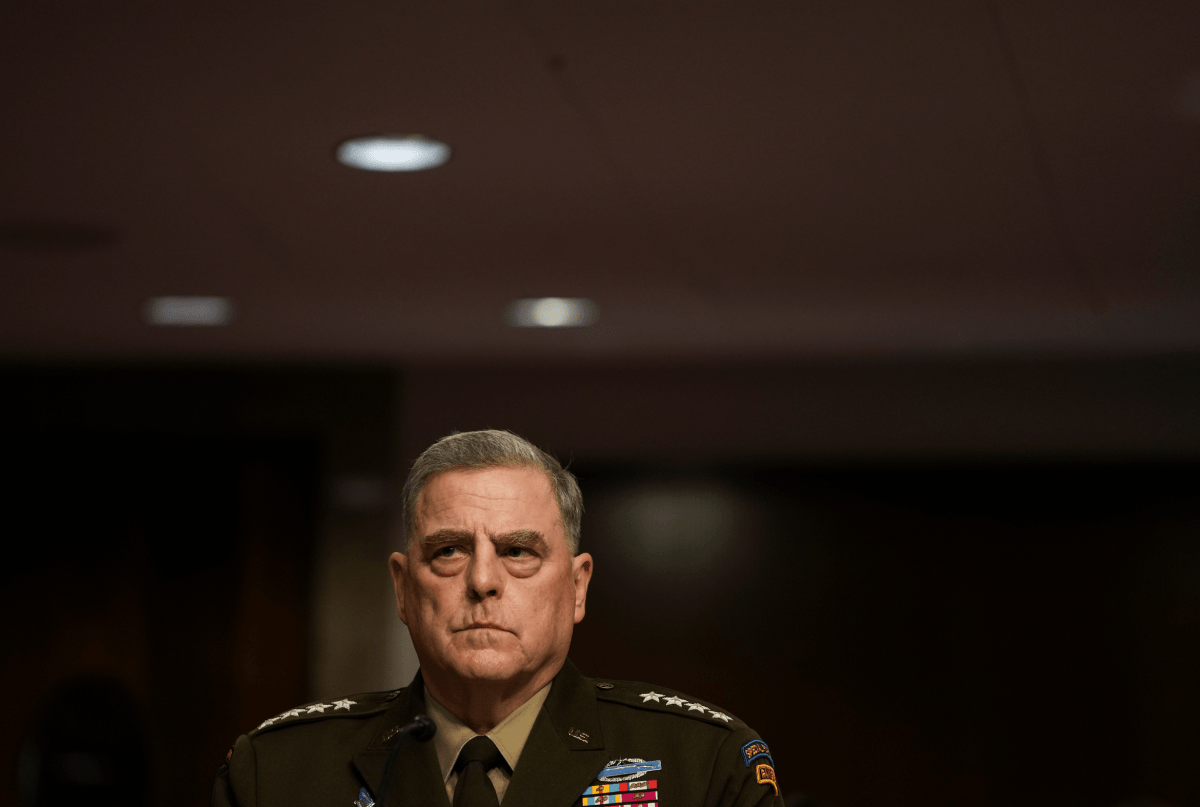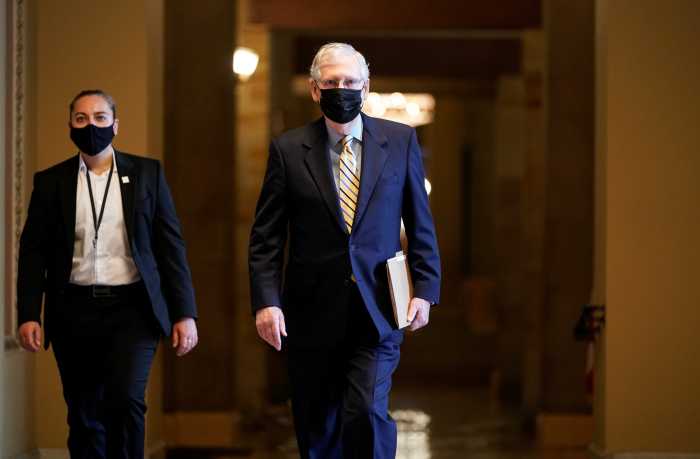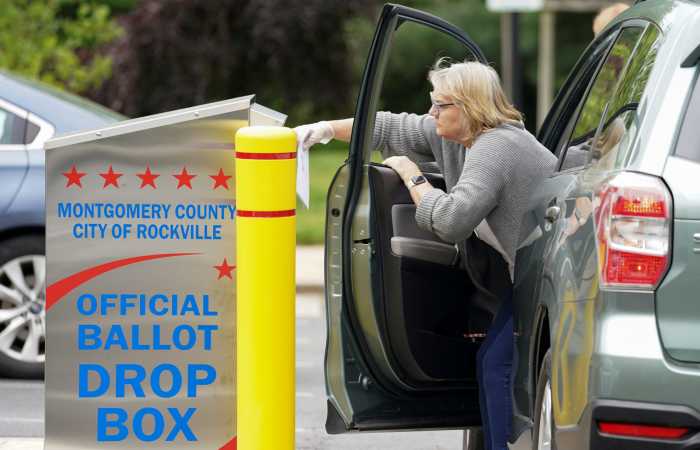General Mark Milley, the top U.S. military officer, on Tuesday defended calls with China that have raised Republican demands for his resignation, saying he had been aiming to ease tension with Beijing and not to “usurp authority.”
The remarks were Milley’s first detailed defense of his actions since a book detailed what it described as “secret” calls with General Li Zuocheng of the People’s Liberation Army on Oct. 30, 2020 and again on Jan. 8.
The book cited Beijing’s concerns that then-President Donald Trump could spark a war with China as his potential election loss loomed, and in its aftermath.
Milley broadly confirmed the premise of the account but dismissed the idea that the calls were secret, saying they had been coordinated with the U.S. government.
“I know, I am certain, President Trump did not intend on attacking the Chinese and it is my directed responsibility to convey presidential orders and intent,” Milley told the Senate Armed Services Committee.
“My message again was consistent: calm, steady, de-escalate. ‘We are not going to attack you.'”
President Joe Biden has supported Milley throughout the controversy surrounding the calls, saying he had “great confidence” in him. It is the latest controversy surrounding the top U.S. military officer, who caused an uproar last year after accompanying Trump toward a church for a photo opportunity after authorities cracked down on civil rights protesters.
He later said he regretted it, saying it created a perception of a military involved in domestic politics.
U.S. INTELLIGENCE
Milley publicly confirmed intelligence that caused U.S. officials to believe China was “worried about an attack” by the United States.
Milley acknowledged that he spoke on Jan. 8 with U.S. House of Representatives Speaker Nancy Pelosi, who, according to the Washington Post, had asked the general what safeguards were in place to prevent an “unstable president” from launching a nuclear strike.
“He’s crazy. You know he’s crazy,” Pelosi told Milley, the newspaper reported, citing a transcript of the call.
Milley, in his remarks to Congress, said Pelosi had asked him on Jan. 8 about whether Trump’s actions might lead to an accidental nuclear missile launch.
He responded by assuring her of safeguards and added: “I am not qualified to determine the mental health of the President of the United States.”
Milley told the Senate Armed Services Committee: “At no time was I attempting to change or influence the process, usurp authority, or insert myself into the chain of command.”
Trump, in a statement, has said he “never even thought of attacking China.” But after the initial account of Milley’s calls with China surfaced, Trump said Milley should be fired if they were true.
Republican Senator Marco Rubio has called for Milley’s resignation. Senator Rand Paul said he should be prosecuted if the account in the book was true.
Some of the strongest concerns have come from lawmakers in the House, where Milley will testify on Wednesday.
(Reporting by Phil Stewart and Patricia Zengerle; Editing by Chizu Nomiyama and Dan Grebler)





































